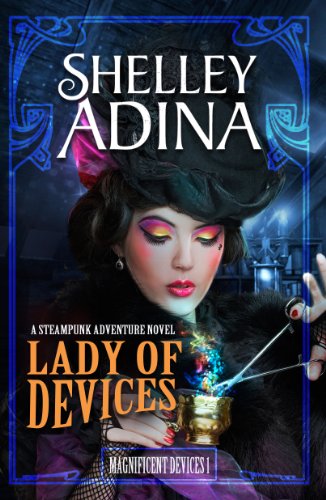An industry in miniature
The other night I went to a panel discussion called “The Future of Publishing,” hosted by the Churchill Club in Silicon Valley. It was moderated by Guy Kawasaki, author of APE: Author, Publisher, Entrepreneur, and the panelists were Barry Eisler, author; Clark Kepler, CEO/bookseller; Dane Neller, CEO, On Demand Books (the company that makes the Espresso Book Machine); and Steve Piersanti, publisher, Berrett-Koehler Publishers.
So, an indie novelist, a bookseller, a POD guy, and a nonfic publisher. Pretty much a snapshot of an industry in flux, right? After my supremely excellent buffet dinner and chardonnay, I settled in to listen with interest and anticipation.
The first thing Kawasaki asked of the panelists was for each to tell another panelist one thing they could do to make the industry better. Here’s how it went:
- Author to bookseller: Work directly with authors (indie or traditional), maybe in connection with the use of the Espresso Book Machine.
- Bookseller to publisher: The relationships with authors are the essence of publishing. Publishers don’t know who reads their books, and people don’t read according to publisher brand. They read authors. At Kepler’s Books, in order to keep community involvement in books going, they have found a way to save money by splitting off author events and community outreach into a nonprofit entity, so that the expenses are funneled into the nonprofit.
- POD printer to bookseller: Bookstores can’t compete with Amazon, but they can create an experience that readers can’t get anywhere else. Engage with the community! Bookshops used to be publishers back in the 1800s, and he believes we’re returning to that model. He even sees big-box stores like Wal-Mart getting into POS/POD printing.
- Publisher to author: When you have a glutted market with too many choices, people turn to brands. The threshold for the buy decision is higher now—people no longer hear a speaker on the radio and rush over to buy the book. Now, the author must target the pass-along market (book clubs, speaking opportunities, and so on) and create a community of readers. He advocates the “immersion experience,” where a reader goes to hear a speaker and invests an hour of her time, and the book becomes a memento of that experience. [Shelley asks herself, What happened to the world the author creates in the book? Isn’t that supposed to be the experience? But then I realize that this is a nonfiction publisher speaking. Fiction is different. I hope.] Authors, especially indie authors, need to learn more: more marketing, more about how to create immersion experiences, more about building their brand. They should join the Publishers Marketing Association because they are essentially publishers.
This was only a small part of a two-hour event, but by the end of that time, I had seen an interesting phenomenon. The authors, bookseller, and POD guy had suggested interesting and innovative strategies to get people engaged with reading books, from improvements in the tools that get books to readers, to ways to decrease shelf blur, to ways to get people into the bookstore—for example, using a sign-in to the bookshop wireless that shows your Facebook friends you’re hanging out there, and what events are going on there that week. I mean, that’s pretty cool.
And the publisher? He seemed like a really nice man who is committed to his company, but his suggestions for improvements to the industry were (a) authors must shoulder nearly all the marketing burden; and (b) publishers should have a mission.
Um.
If this group of savvy, informed folks is a microcosm of our industry, I’ll tell you this. It’s no wonder publishers are huddling together and merging into each other like frightened amoebas. Because in the midst of an evening of exciting strategizing, it seemed very clear to me that one publisher at least had no Plan B. And I suspect he is not the only one.





You had me at buffet and chardonnay. I’ve got to get a babysitter… I am continually stunned by the lack of Plan B from publishers (sweeping generalization there). This “major shift” has all ready happened in music and newspapers…can’t they learn something from those predecessors?
I have just read Lady of Devices on my kindle – and I’m saving up for the others! I am a “professional reader” aka reviewer, and I loved your POV on this panel. I am mostly in touch with authors, not publishers, but what I hear authors saying is right in line with the scenario about non-existent plan Bs! Great blog, thanks for sharing your thoughts on it!
Laura
Yes, publishers should have a mission. More than simply staying in business. I have yet to hear from the publisher who is willing to agree they cannot get the best authors for a song and hold the rights forever. Just that little concession would make me feel like they got it.